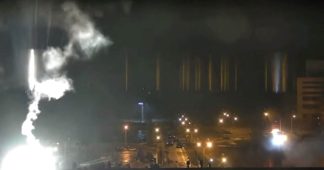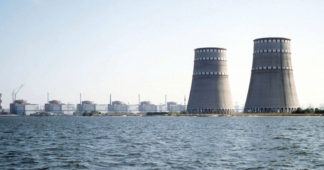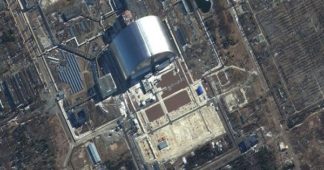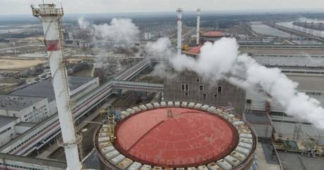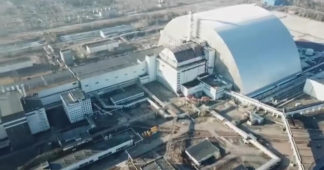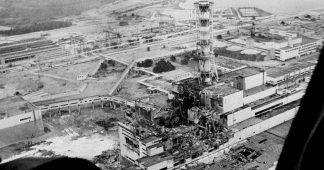IAEA must remain apolitical despite pressure from Ukraine
Posted on **
The head of the International Atomic Energy Agency (IAEA), Rafael Grossi, contradicted Ukrainian authorities on August 31 by stressing that his visit to the Zaporizhzhia nuclear power plant was a “technical mission” that aimed to prevent a nuclear accident. His comments came as Kiev claimed his visit was a step towards “de-occupying” the power plant from Russian control.
Grossi, who led the mission, arrived on August 31 to the Ukrainian city of Zaporizhzhia, near the power plant Asked about whether the plant could become a demilitarized zone, he said that “this is a matter of political will”, adding: “But my mission – I think it’s very important to establish (this) with all clarity – my mission is a technical mission.”
“It’s a mission that seeks to prevent a nuclear accident. And to preserve this important (nuclear power plant),” he said.
On August 31, Ukrainian Energy Minister German Galushchenko told Reuters that the IAEA mission to the Russian-held Zaporizhzhia nuclear plant was a step towards “de-occupying and demilitarizing” the site, prompting Grossi to stress that it was just purely a “technical mission”.
The nuclear power plant, the largest in Europe, was captured by Russian forces in March but is still operated by Ukrainian staff. The site is less than 10 km away from Ukrainian positions across the Dnipro River and has come under repeated shelling over the past month, with Ukraine and Russia accusing each other of being responsible.
Many are finding it hard to believe that Russia is responsible for the shelling as it has nothing to gain by destroying vital infrastructure that it already controls. Meanwhile, Ukraine could be motivated to shell the plant as it can continue manipulating Western audiences via its intense media campaign by denying such attacks and claiming that Russia will soon be responsible for a nuclear catastrophe.
Arriving at the site, Grossi said “The difference between having the IAEA at the site and not having us there is like day and night. I remain gravely concerned about the situation at the Zaporizhzhya Nuclear Power Plant – this hasn’t changed – but the continued presence of the IAEA will be of paramount importance in helping to stabilize the situation. I’m immensely proud of the critically important and courageous work the IAEA team is now able to perform at the ZNPP.”
Although Kiev attempted to manipulate such statements to mean that Russia will soon abandon the site, it also means that there will be neutral observers to any future attack against the power plant. Despite it not being the IAEA’s mission to hold anyone accountable for attacks as their focus is purely technical, they will be eyewitnesses to any strikes, and Kiev might want to avoid another fiasco like the uncovering of the “Ghost of Kiev” and “Snake Island” myths.
Explaining the nature of his trip, Grossi said: “Our team on the ground received direct, fast and reliable information about the latest significant development affecting the plant’s external power situation, as well as the operational status of the reactors. We already have a better understanding of the functionality of the reserve power line in connecting the facility to the grid. This is crucial information in assessing the overall situation there.”
With Zaporizhzhia nuclear power plant working at limited capacity, it also means that Ukraine misses out on potential new opportunities for revenue, especially at a time when Europe hopes nuclear energy can help offset the loss of oil and natural gas imports from Russia that were imposed through self-destructive sanctions, which are now massively backfiring.
Although Germany planned to close all of its nuclear reactors by the end of the year, there is debate on whether to keep them open as the country faces an economic crisis not seen since last century’s two world wars. Neighboring Belgium, which was planning to close two reactors by 2025, has decided to keep them operating until at least the 2030’s. France, going in the complete opposite direction to Germany and Belgium, is looking to build an additional 14 reactors over the coming decades, as are the United Kingdom, Czech Republic, Poland and others.
Nonetheless, Kiev’s attempt to politicize the IAEA mission completely failed as the agency made it clear that its only intentions are technical in nature. This will not deter Kiev from continuing such attempts of politicizing the agency, and it remains to be seen whether the IAEA will go down the path of the Organization for the Prohibition of Chemical Weapons (OPCW), which was humiliating caught-out covering up a damning report regarding Syria and lost its credibility.
* Ahmed Adel is a Cairo-based geopolitics and political economy researcher.
We remind our readers that publication of articles on our site does not mean that we agree with what is written. Our policy is to publish anything which we consider of interest, so as to assist our readers in forming their opinions. Sometimes we even publish articles with which we totally disagree, since we believe it is important for our readers to be informed on as wide a spectrum of views as possible.
